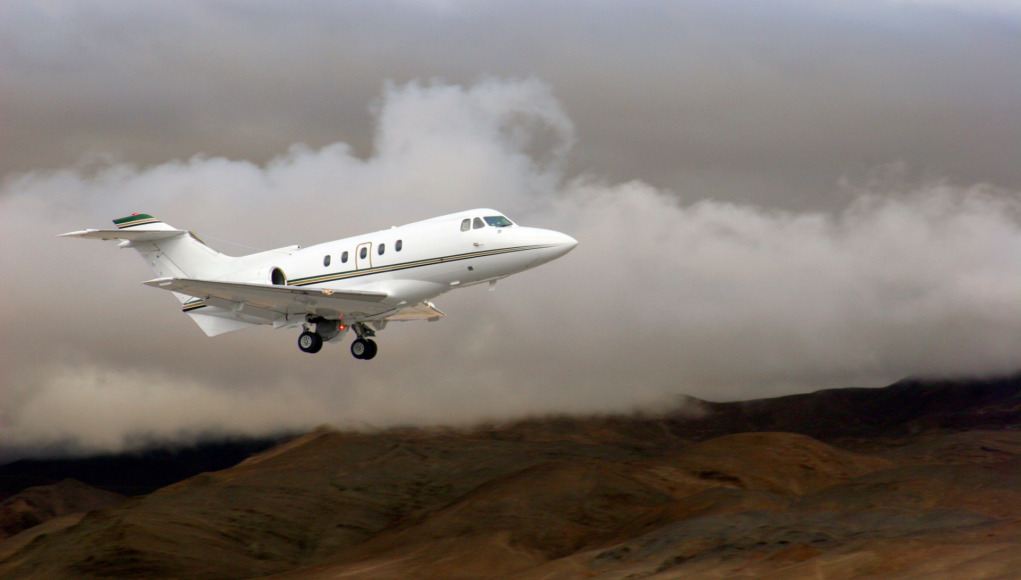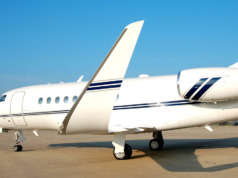Fifteen years ago, if you had discussed operating a business jet in Africa, eyebrows probably would have been raised. At that time, the vast continent was thought to be the resting place for many of the world’s older business aircraft, and operational standards were questioned. Today Africa presents a very different picture, with its foundations set by the hard work of the African Business Aviation Association (AfBAA), representing 56 active members, 19 charter companies, and approximately 80 biz aircraft (jets only) in Africa, plus industry leaders from across the continent.
Business aviation is now seen as an essential transport pillar maintaining a basic level of mobility and stability for the continent. Emergency services and medevac operators, freight forwarders, shuttle services supporting the hydrocarbon and mining industries, humanitarian agencies, crop dusting and anti-poaching organizations, pest and wild-fire spotter aircraft, traditional business aviation, high net worth tourists, and international heads of state all are reliant on the sector, which underpins a dynamic economic infrastructure.
According to an October 2020 Nasdaq article, seven of the world’s top ten fastest growing economies are African. For those optimizing the continent’s many opportunities, business aviation is essential, yet those flying across Africa’s vast terrain need to be aware of the potential causes of operational turmoil in the welcoming skies.
The Challenges
Permits
Permit sourcing epitomizes the continent’s diverse challenges and can be bewildering. Africa embraces 54 nations, each with its own appreciation of business aviation. Some Civil Aviation Authorities (CAAs) support online applications and take an hour to process, while others can take at least three days and require substantial administrative information.
Landing and overfly permit fees vary significantly by country. One nation may not have a CAA fee for the permit, yet its neighbor might have a fee of several hundred USD just for the application, and a subsequent fee in the thousands of USD for the actual granted permit.
Infrastructure
According to aviation data research and consultancy WingX, business aviation use has grown significantly. Pre-COVID movements were up by 53% year-on-year in the first quarter of 2020. But only 622 of African airports have the 5000 feet of paved runway needed to support a business jet. And there still are only a handful of FBOs that support the standards to which international crew and passengers are accustomed. The majority of business aviation flights currently are processed through regular passenger terminals, which can result in limited security offerings, reduced discretion, and unnecessary complexity which may compromise service levels.
There also is insufficient maintenance support across the continent which causes problems if unexpected maintenance is required. Parts often are held up in customs, with unpredictable arrival. While there is an increasing number of manufacturers’ authorized service centers and maintenance companies being established across the continent, access is not always easy.
Expectation Management
The African landscape is dynamic. Services, capabilities, and their associated fees change daily across the continent – even within the same countries.
Fuel fees are driven by regional, international, and global economics, and can change on a whim. And the strong oil and gas industry does not translate to competitive fees.
Inflight services rarely meet the standards international travellers need. Many airports do not have onsite catering for business aviation. Ground handlers may take the initiative and visit local business hotels to source catering. The quality differs considerably across the continent.
Making payments can be problematic. Credit card systems don’t always work, cross-border transactions can be restricted, and online-banking requires consistent internet access which frequently can be inconsistent.
The Competition
The significant increase in regional airports, strengthening economies stimulating the growing middle class, and the upgrading to paved runways at existing airports have had positive impacts on recent aviation growth. More people than ever before are flying regionally, although this has yet to benefit the business aviation sector. Airports are increasingly congested and non-commercial airline traffic receives lowest priority. Relatively speaking, small business aircraft are vying with commercial operations for slots, parking, catering, fuel, and/or navigation routes.
Ten Tips for Successful Operations
- Expect African flight operations to operate differently than in Europe, North America, or other regions. Consistency of systems are erratic, and consequently flight operations regularly require modifications. A previously seamless experience is not a guarantee of a smooth future one.
- Ensure all aircraft and operator documents are up-to-date. The last thing you need is to generate fresh documentation while trying to source a permit, for example. Bring all paperwork related to the aircraft, crew, passengers, pets, and licenses. Africa has a legacy of colonial bureaucracy to shed, and paperwork is always appreciated.
- At your regular destinations, get to know the local CAAs and make sure you are in good standing with them in terms of fees settlement.
- Confirm which valid entry and exit points are open, as they sometimes close unexpectedly for any number of reasons – from construction and maintenance to animal incursions or power outages. Look out for airway closures, military exercises and, unfortunately, armed conflict, which can cause restricted airspace movement. Have a Plan B, as mid-route changes and flight plan modifications are common, and this also can affect fees.
- Be prepared. Have all operational items and checklists – airport charts, flight plan filing, and weather reports – completed before departure and readily available at all times, just in case modifications need to be made en route.
- Always confirm the exact service price. Request a detailed breakdown that includes any “extras.” Fees you anticipate paying directly to a supplier may have an associated administrative charge accrued by the trip planner. Be aware of taxes and service fees when requesting quotes, especially when ordering fuel.
- Bank transfers often get delayed and require patience. Credit cards may not be accepted. Depending on the destination and levels of security, it may be advisable to carry cash.
- Ensure all upcoming scheduled maintenance is undertaken prior to the flight whenever possible. Being aware of the factory-owned or authorized independent facility closest to the end destination can alleviate unnecessary delays.
- For specific inflight requests, bring preferred refreshments or devices with you when possible.
- Creating strong relationships with suppliers is of paramount importance. It helps to ensure that the individuals delivering the services will go the extra mile. Networking with partners at your principal destinations is invaluable. Companies with a local representative who understands the nuances, language, cultural gestures, and how business aviation operates in the region are priceless.
The Future
The lack of infrastructure or sophistication is not a result of disinterest, but stems from historical perception and misunderstanding about business aviation benefits, which have stalled investment. Ironically, COVID-19 has highlighted bizav’s advantages to governments and commercial airlines as it has showcased its versatility and efficiency through the pandemic. If industry and government can effectively communicate and collaborate to facilitate future sustainable sector growth, operations will become more straightforward, positioning Africa as one of the most dynamic business aviation sectors globally. Africa is resoundingly open for business. BAA
Dawit Lemma is the founder and President of Krimson Aviation. A qualified pilot, he also is President of the AfBAA Ethiopian Chapter and has been integral to the Association’s development.





